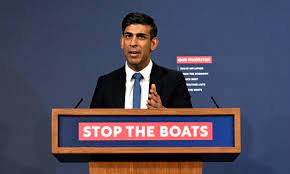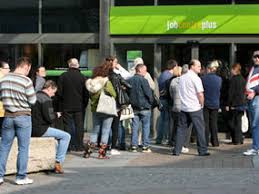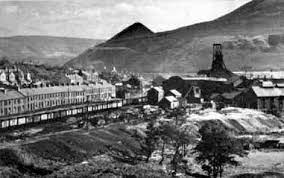- Legal eagle - 19th February 2026
- Round Robin - 19th February 2026
- Dark speak easy part one - 18th February 2026

Migration numbers are at a record level and as Wales is a ‘nation of sanctuary’ for asylum-seekers, here our Editor Welshman Phil Parry looks at whether foreigners bring benefits or harm.
Earlier he described how he was assisted in breaking into the South Wales Echo office car when he was a cub reporter, recalled his early career as a journalist, the importance of experience in the job, and made clear that the ‘calls’ to emergency services as well as court cases are central to any media operation.
 He has also explored how poorly paid most journalism is when trainee reporters had to live in squalid flats, the vital role of expenses, and about one of his most important stories on the now-scrapped 53 year-old BBC Wales TV Current Affairs series, Week In Week Out (WIWO), which won an award even after it was axed, long after his career really took off.
He has also explored how poorly paid most journalism is when trainee reporters had to live in squalid flats, the vital role of expenses, and about one of his most important stories on the now-scrapped 53 year-old BBC Wales TV Current Affairs series, Week In Week Out (WIWO), which won an award even after it was axed, long after his career really took off.
Phil has explained too how crucial it is actually to speak to people, the virtue of speed as well as accuracy, why knowledge of ‘history’ is vital, how certain material was removed from TV Current Affairs programmes when secret cameras had to be used, and some of those he has interviewed.
He has disclosed as well why investigative journalism is needed now more than ever although others have different opinions, how the pandemic played havoc with media schedules, and the importance of the hugely lower average age of some political leaders compared with when he started reporting.

“We’ll be swamped”. “They should go back to their own country”. “They only come here for benefits anyway”.
You might not hear these (frankly racist) attitudes so much now, but they hover unsaid in a lot of policy today.
The number of overseas people coming to the UK is very much in the news, and has become a political touch stone.
The use (or otherwise) of Rwanda as a place to send some of them, is only one example today.

The Prime Minister Rishi Sunak claims his policies to “stop the boats” are working, despite the fact that more than 1,000 people made the journey over the channel one weekend in the summer.
He has said his “overall strategy is the right one”.


The UK Conservative election manifesto in 2019, included the pledge that under their leadership “there will be fewer lower-skilled migrants and overall numbers will come down”. But net migration has more than doubled since then.
Right of centre and extreme right-wing politicians, like to outdo each other in looking tough on foreigners coming here, and in one recent incident the UN Refugee Agency rebuked the then Home Secretary Suella Braverman.

She had said: “Uncontrolled immigration, inadequate integration, and a misguided dogma of multiculturalism have proven a toxic combination for Europe over the last few decades”.
Ms Braverman, added controversially that immigration to the UK and Europe “has been too much, too quick, with too little thought given to integration and the impact on social cohesion”.

She was in the news for condemning the use of hotels to house asylum-seekers, and stated that she was “very concerned…”, calling their use “unacceptable”, telling Parliament: “It is totally unacceptable that too many towns and cities around the country now house the 45,000 asylum seekers who are in hotels… it is not right…”.
The numbers of asylum-seekers, and immigration figures are, of course, two entirely different issues, but they are often conflated in the minds of voters, and politicians know this, however they do nothing to disabuse people because they think it will benefit them.
But the numbers do not look good for them.

The UK saw net migration of 606,000 people in 2022, the Office for National Statistics (ONS) said, with 1.2 million people arriving, and about half that number leaving.
That comes despite pledges from successive UK Conservative Governments to reduce drastically the numbers of people moving to the UK, particularly in the wake of Brexit – a rupture that was touted by its proponents as a necessary step for Britain to “take back control” of its borders.

It is worth, therefore, trying to establish whether migrants benefit the economy and society as a whole of their host nation, or harm them.
In terms of wages, there is some evidence they slightly suppress increases at lower levels (picking crops for example), although migrants vastly improve the economy (and increase salaries) at the upper levels.


Immigration affects the number of workers in the economy, boosting the ‘labour supply’ in certain occupations and industries. This often means more jobs are created.
Immigration can also expand the demand for workers and thus make new roles. For example, migrants themselves buy goods and services, increasing demand.
Employers may increase production in sectors where migration allows them to employ more people (e.g. in the agriculture or care sectors) or use more labour-intensive production methods.

Population too is affected (see story soon), but usually in a good way.
The population of countries (whether growing or falling) is absolutely critical to its future health.
Several countries around the world have enormous problems, and are offering incentives to young people to have children.
In Italy, for instance, the Prime Minister, Giorgia Meloni has declared that her nation is “destined to disappear” unless something is done.
We in the UK are less at risk of being affected by the problems associated with this falling demographic trend, because, to a large extent, we have a ‘high’ level of inward migration.

Culturally as well, there have been major positive aspects.
The days of taking the family to a Berni Inn or the local hotel for a posh meal, are, thankfully, over.
Now you are far more likely to go to a nice Indian, Chinese, or Italian restaurant.
For Wales the picture has always been a good one. People coming to the country looking for work, in order to study, or to join their family already here, is NOT a new phenomenon.

Thousands of people from different parts of the world migrated to Wales, especially South Wales, during the 19th Century to work in the coal and steel industries or in the docks. They have continued to arrive for a variety of reasons.
So it is pretty obvious that immigration is enormously beneficial, and has a long history, with asylum-seekers likely to do the same so they should be welcomed, not demonised.

It seems a shame that our politicians haven’t woken up to this fact…
Phil’s memories of his astonishing decades long award-winning career in journalism (when issues like immigration and asylum-seeking were always analysed using the FACTS), as he was gripped by the rare neurological disabling condition Hereditary Spastic Paraplegia (HSP), have been released in a major book ‘A GOOD STORY’. Order the book now!
Regrettably publication of another book, however, was refused, because it was to have included names.









